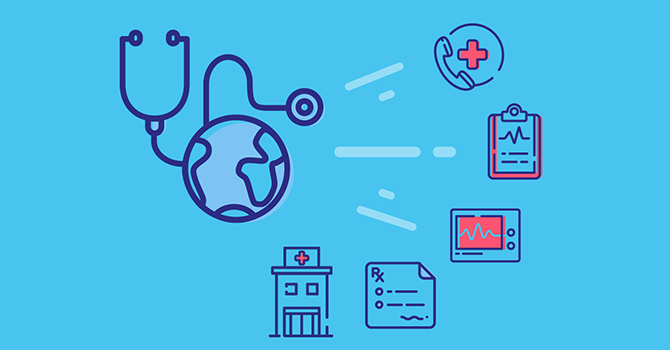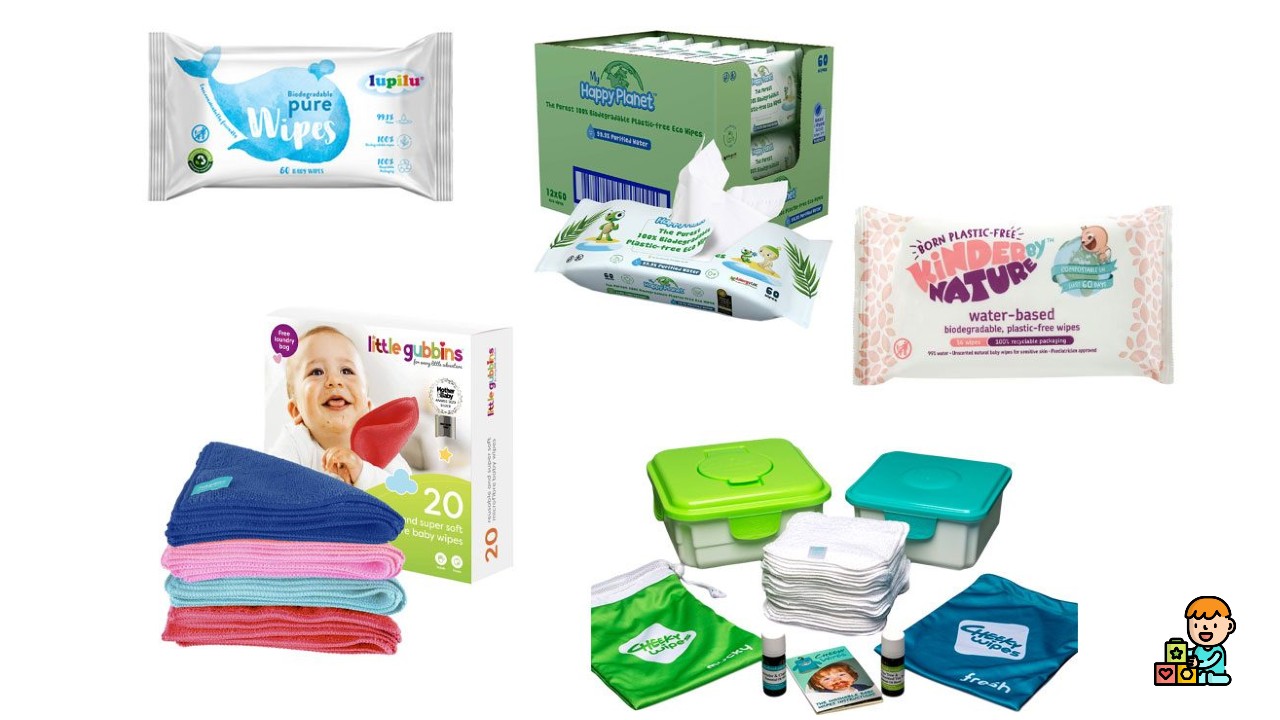Health
How to Build Resilient and Strong Healthcare Systems

Oscar L Kashala – a politician in the Democratic Republic of the Congo and a candidate in the 2006 presidential election- equips a platform of discussion on innovative solutions and methods to improve the resilience of health systems in a financially tolerable way during these unsettled times.
Oscar graduated from Kinshasa University Medical School in 1980, completing honors and training in internal medicine along with pathology at the University of Kinshasa. Later at the University of Lausanne and the University of Geneva Medical Schools. He is a physician with an international reputation and a high level of compassion bent on ensuring people get the support and dignity they deserve through social medicine.
In 1986, the World Health Organization (WHO/AFRO) awarded him a fellowship for medical oncology in Boston. Then he obtained a company in cancer biology at Harvard University, Boston. This was followed by admission into a doctoral program in cancer biology and immunology in a combined degree program (Harvard University and Massachusetts Institute of Technology). He received a Doctor of Science degree from Harvard University in 1992.
His other ventures include “Afrigentech Company Limited” in Drug Discovery, innovative Pharmaceutical Research and Development, and molecular diagnostics. Afrigentech is a clinical-stage biopharmaceutical company and a healthcare systems corporation that focuses on research and development (R&D) and manufacturing innovative pharmaceutical products from natural sources for human and animal health in emerging markets of Africa.
In light of this remarkable health concern, all countries have ramped up measures to mitigate the pressure on their healthcare systems. Countries have strengthened access to health care, emphasizing the importance of high-quality universal health coverage. The situation has revealed the extent of versatile health systems.
While another common challenge to effective governance is a lack of resources, which can include financial resources and human capital; when an organization needs more resources to support its governing body, it can be challenging to achieve success. Fortunately, there are ways to overcome these challenges and build an effective system of governance. By clearly defining roles and responsibilities, maintaining commitment among all members of the governing body, and ensuring adequate resources, organizations can set themselves up for success.
Oscar has always put people first: The health, safety, and welfare of the citizens of the Congo is the first job of the government, and the goal is to achieve maximum performance on the human capital index, record economic growth, and creation a true middle class ensuring social up mobility for the yet forgotten, voiceless, destitute, and the abandoned.
Oscars government promises to reform the health care system and deliver world-class and efficient services to every city, town, and village of the New Congo. There are key unmet medical needs that his government says will be at the forefront of our public health governance, especially psychological trauma related to armed conflicts, maternal-child health, major communicable and non-communicable diseases such as diabetes, cardiovascular diseases, cancer. We will establish nationwide centers for prevention, detection, monitoring, and control of pandemics outbreaks and strengthen global health security

Health
Nourish Your Life Today And Expand Your Life Span in 2024

In a world that often demands more than it gives, finding ways to nourish your life can lead to a more fulfilling and balanced existence. Nourishment goes beyond the food we eat; it encompasses our mental, emotional, and physical well-being. To truly nourish your life, it’s essential to cultivate habits and practices that promote overall health and happiness. This comprehensive guide will explore various strategies to help you nourish your life in every aspect.
1. Understanding True Nourishment
What Does It Mean to Nourish Your Life?
Nourishing your life means providing the necessary sustenance for your body, mind, and soul to thrive. It involves adopting a holistic approach that includes healthy eating, mental well-being, emotional balance, and physical fitness.
The Importance of Holistic Well-being
Holistic well-being recognizes the interconnectedness of the different aspects of our lives. By addressing all areas—physical, mental, emotional, and spiritual—we can achieve a state of harmony and balance.
2. Nourishing Your Body
Balanced Nutrition
Eating a balanced diet rich in fruits, vegetables, whole grains, lean proteins, and healthy fats is fundamental to nourishing your body. These foods provide essential nutrients that support overall health and vitality.
Hydration
Staying hydrated is crucial for bodily functions, including digestion, circulation, and temperature regulation. Aim to drink at least 8 glasses of water daily and adjust based on your activity level and environment.
Regular Exercise
Incorporating regular physical activity into your routine helps maintain a healthy weight, boosts energy levels, and improves mood. Choose activities you enjoy, such as walking, cycling, swimming, or yoga.
Adequate Sleep
Quality sleep is essential for physical health and cognitive function. Establish a consistent sleep routine and aim for 7-9 hours of sleep per night to ensure your body can rest and repair.
3. Nourishing Your Mind
Continuous Learning
Keeping your mind active through continuous learning helps maintain cognitive function and mental agility. Engage in activities like reading, puzzles, learning a new skill, or taking up a hobby.
Mindfulness and Meditation
Practicing mindfulness and meditation can reduce stress, enhance focus, and promote emotional stability. Start with a few minutes each day and gradually increase the duration as you become more comfortable.
Mental Health Support
Seeking support for mental health issues is crucial. Therapy, counseling, and support groups can provide valuable resources for managing stress, anxiety, depression, and other mental health conditions.
4. Nourishing Your Emotional Health
Building Resilience
Resilience is the ability to bounce back from adversity. Cultivate resilience by developing a positive outlook, practicing self-compassion, and maintaining a strong support network.
Emotional Expression
Expressing emotions in a healthy way is vital for emotional health. Journaling, talking to a friend, or engaging in creative activities like art or music can help process and express feelings.
Healthy Relationships
Building and maintaining healthy relationships contribute significantly to emotional well-being. Invest time in nurturing connections with family, friends, and loved ones.
5. Nourishing Your Spirit
Finding Purpose and Meaning
Having a sense of purpose and meaning in life is essential for spiritual nourishment. This can come from work, hobbies, volunteering, or other activities that provide a sense of fulfillment.
Spiritual Practices
Engaging in spiritual practices, whether through religion, meditation, or personal reflection, can enhance your sense of connection and inner peace.
Nature Connection
Spending time in nature can be incredibly grounding and rejuvenating. Activities like hiking, gardening, or simply sitting in a park can foster a deeper connection with the natural world.
6. Practical Steps to Nourish Your Life
Setting Goals
Set realistic and achievable goals that align with your values and passions. Having clear goals gives direction and purpose, motivating you to make positive changes.
Creating a Routine
Establishing a daily routine that includes time for self-care, work, and leisure helps create balance. Consistency in your routine can lead to better habits and improved well-being.
Self-Care Practices
Self-care involves taking deliberate actions to care for your physical, mental, and emotional health. This could include activities like taking a relaxing bath, reading a book, or practicing yoga.
7. Overcoming Barriers to Nourishment
Time Management
One of the biggest challenges to nourishing your life is finding the time. Prioritize your well-being by scheduling time for activities that nourish you, and learn to say no to commitments that drain your energy.
Staying Motivated
Maintaining motivation can be difficult. Surround yourself with supportive people, track your progress, and celebrate small victories to stay motivated on your journey.
Access to Resources
Access to resources like healthy food, fitness facilities, and mental health support can be a barrier. Explore community resources, online programs, and affordable options to overcome these challenges.
8. The Benefits of a Nourished Life
Improved Physical Health
Adopting nourishing habits can lead to better physical health, including increased energy levels, improved immune function, and reduced risk of chronic diseases.
Enhanced Mental Clarity
Nourishing your mind through continuous learning and mental health support can enhance cognitive function, memory, and mental clarity.
Greater Emotional Stability
Practicing emotional expression and building resilience can lead to greater emotional stability, reducing stress and improving overall mood.
Deeper Spiritual Connection
Engaging in spiritual practices and finding purpose can lead to a deeper sense of connection and inner peace, enriching your life experience.
Conclusion
Nourishing your life is an ongoing journey that requires intentional effort and commitment. By addressing all aspects of well-being—physical, mental, emotional, and spiritual—you can achieve a balanced and fulfilling life. Remember, small, consistent changes can lead to significant improvements in your overall well-being.
FAQs
1. How can I start incorporating mindfulness into my daily routine?
Begin with short sessions of mindfulness meditation, focusing on your breath and being present in the moment. Gradually increase the duration and try to incorporate mindfulness into everyday activities like eating and walking.
2. What are some affordable ways to improve personal well-being?
Affordable ways to improve well-being include practicing yoga at home, using free health apps, engaging in outdoor activities, and connecting with supportive communities online or locally.
3. How does wearable technology benefit personal well-being?
Wearable technology helps track physical activity, monitor sleep patterns, and provide health insights, enabling individuals to make informed decisions about their well-being and maintain healthy habits.
4. What are some effective stress management techniques?
Effective stress management techniques include mindfulness meditation, deep breathing exercises, physical activity, journaling, and spending time in nature.
5. How can I maintain a work-life balance?
Maintain a work-life balance by setting boundaries, prioritizing tasks, taking regular breaks, and ensuring time for personal activities and relaxation. Flexible working conditions and ergonomic workspaces also help in achieving this balance.
Health
How Europeans can use surrogacy in Ukraine to find their happiness

Surrogacy has emerged as a viable option for individuals and couples across the globe facing challenges with conception or pregnancy. Among the countries offering surrogacy services, Ukraine has gained prominence as a popular destination, attracting prospective parents from Europe and beyond. In this comprehensive guide, we delve into the landscape of surrogacy in Ukraine, providing insights, considerations, and essential information for European individuals and couples exploring this pathway to parenthood.
The Legal Landscape of Surrogacy
One of the primary draws of surrogacy in Ukraine for European intended parents is its favorable legal framework. Ukrainian legislation permits surrogacy arrangements, providing a clear legal pathway for establishing parental rights. The country’s laws prioritize the rights of intended parents, ensuring that they are recognized as the legal parents of the child born through surrogacy, with the surrogate and her husband (if applicable) relinquishing all parental rights.

Medical Expertise and Infrastructure
Ukraine boasts a robust medical infrastructure and a wealth of fertility clinics with advanced technologies and experienced professionals specializing in assisted reproductive techniques. Prospective parents can access comprehensive medical evaluations, fertility treatments, and surrogacy services tailored to their specific needs.
Surrogacy in Ukraine: Affordability and Accessibility
Compared to surrogacy options in other European countries or the United States, surrogacy in Ukraine is often more affordable, making it an attractive option for European individuals and couples seeking cost-effective alternatives. The relatively lower cost does not compromise the quality of medical care or legal protections, offering a compelling value proposition for prospective parents.
Ethical Considerations
While Ukraine provides a conducive legal and medical environment for surrogacy, prospective parents should approach the process with ethical considerations in mind. It is essential to prioritize the well-being and rights of all parties involved, including the surrogate, egg donor (if applicable), and the child. Open communication, transparency, and respect for the autonomy and dignity of the surrogate are paramount throughout the surrogacy journey.
Cultural and Logistical Factors of Surrogacy
European intended parents embarking on the surrogacy journey in Ukraine may encounter cultural and logistical differences. Understanding and navigating these nuances, including language barriers, cultural norms, and logistical arrangements, are integral to ensuring a smooth and successful surrogacy experience.
Surrogacy in Ukraine offers European individuals and couples a promising pathway to parenthood, combining legal clarity, medical expertise, affordability, and accessibility. By familiarizing themselves with the legal framework, medical infrastructure, ethical considerations, and cultural aspects of surrogacy in Ukraine, prospective parents can make informed decisions and embark on their journey to building a family with confidence and peace of mind.
Health
Best baby wipes without toxins

I had no intention of using the Best Non Toxic Baby Wipes and thought that in addition to using only cloth diapers as for baby wipes, I would be changing the baby with a washcloth and warm water.
Well, yeah. Wringing out poopy rags became obsolete as soon as I discovered the convenience of the disposable wipe.
I believe it is essential that we choose truly non-toxic baby wipes due to the frequency with which we use them, the fact that they are used on a baby’s most delicate area, and the fact that we don’t wash the area off after use.
No disposable wipe, not even the “eco-friendly” ones we’ll discuss here, is a green option in terms of the environment. The only items that can truly be deemed eco-friendly are water and a washcloth.
The good news is that baby wipe ingredients have unquestionably improved since I wrote the first edition of this guide ten years ago. phenoxyethanol and fragrance were then. These ingredients are much less prevalent now!
What Are the Uses of Wet Wipes?
When changing my child’s diaper at home, I prefer to use washable towels or dry wipes, water, and a tiny drop of baby wash. It’s not too inconvenient and much more environmentally friendly.
But carrying a cloth and some water is impractical when we’re moving or traveling. So I try to use non-toxic baby wipes that have as few chemicals and additives as possible whenever I need to use baby wipes. I also seek manufacturers who produce both the packaging and the actual sheet portion of their products using eco-friendly materials.
Why Is Non-Toxic Baby Wipe Manufacturing So Important?
Consider the surfaces you clean with baby wipes.
The most sensitive skin on your baby’s body may be found on its bottom and face. Furthermore, infants with extremely thin skin are more sensitive to chemicals.
- Unlike other toiletry items, wipes don’t require rinsing with water after use.
- Thus, whatever is on the baby wiped’s surface remains on your child’s skin.
- What I mean is? Those elements must be considered!
Ingredients in Baby Wipes to Avoid
Avoiding anything scented is your best chance if, like me, you find it difficult to give up the convenience of disposable baby wipes. “Fragrance” or “parfum” nearly invariably refers to phthalates.
Additionally, phenoxyethanol, a potential carcinogen, and parabens are both present in certain traditional wipes. Phenoxyethanol may be present in “natural” or “organic” wipes, in particular, as a preservative.
Ingredients Hidden on Baby Wipe Labels
There are a number of other chemicals that could be present in wipes in addition to the ones specified on the side of the container as impurities and byproducts of the manufacture of some of the components.
For instance, the preservative Polysorbate-20 is frequently tainted with the cancer-causing chemical 1, 4-dioxane.
The preservative 2-Bromo-2-Nitropropane-1, 3-Diol, which was formerly present in Kirkland wipes but has since been removed, emit formaldehyde, a known carcinogen. Tocopheryl acetate, a synthetic vitamin E used to treat skin, is made using hydroquinone, a skin toxin, and possible carcinogen.
Disposable diaper wipes alternatives
Numerous new biodegradable wipes brands have emerged since Felix was born in 2009, and they are far safer, more environmentally friendly, and more effective than existing “natural” types of wipes. Skin Deep doesn’t review the majority, but I’ve looked through the ingredients and explained any issues below.
Some businesses provide natural liquid solutions to use instead of baby wipes, but if you were going this path, I don’t see why you couldn’t just use water and a washcloth. This is a secure choice if you wish to get one of these eco-friendly solutions such as the Best Non Toxic Baby Wipes.
A Word about Wet Wipes and Their Unknown Ingredient
Water wipes are a well-known brand of wipes that are promoted as simply containing water and grapefruit seed extract (GSE). The GSE serves as a preservative since the wet atmosphere within the wipe container serves as a haven for germs and mold.
But starting in 2020, the company’s ingredients list has been updated to mention “trace of benzalkonium chloride.” Products are disinfected and preserved with benzalkonium chloride.
Although they don’t say how much benzalkonium chloride is really in the wipes, it is a known irritant and contact allergy.
We do not suggest these above other brands due to this plus the fact that there are better wipes on the market.
Note Regarding Preservatives
Baby wipes require some kind of preservative due to their nature, which prevents bacteria and mold growth.
For all wet baby wipes, this is true.
While many forms of germs are minuscule and cannot be seen with the human eye, mold is frequently apparent to the naked eye. These pollutants have the potential to result in life-threatening illnesses, especially in those with weakened or impaired immune systems, such as infants.
The issue is that certain baby wipes include no mention of any preservatives at all.
There are just two possibilities here:
- They employ an unidentified preservative.
- They don’t use any preservatives at all, which means the product can be contaminated.
We must be wary of wipes that do not list any preservatives for this reason.
This might imply that they’re employing a preservative that might be problematic or that if the wipes aren’t used up right away, mold or bacteria might start to grow on them.
We pay particular attention to the preservatives used or the lack thereof in our product assessments.

 Others10 months ago
Others10 months agoDavid T Bolno: Why Giving Back To The Community Is So Crucial

 Travel10 months ago
Travel10 months agoPractical And Essential Car Interior Accessories To Add Comfort And Convenience To Your Drive

 Travel10 months ago
Travel10 months agoBusiness Visa for CANADA

 Business10 months ago
Business10 months agoTop Reasons Why you Need to Consider Outsourcing Real Estate Photo Editing

 Health10 months ago
Health10 months agoGarlic Is The Best Vegetable To Treat Heart Problems

 Business10 months ago
Business10 months agoDead And Co Setlist What They Played At The Gorge Amphitheatre

 Fashion10 months ago
Fashion10 months agoTips For Choosing The Right For Engagement Diamond Rings

 Tech10 months ago
Tech10 months agoThe Best Way to Never Get Lost: Buy Wayfinding Signs!